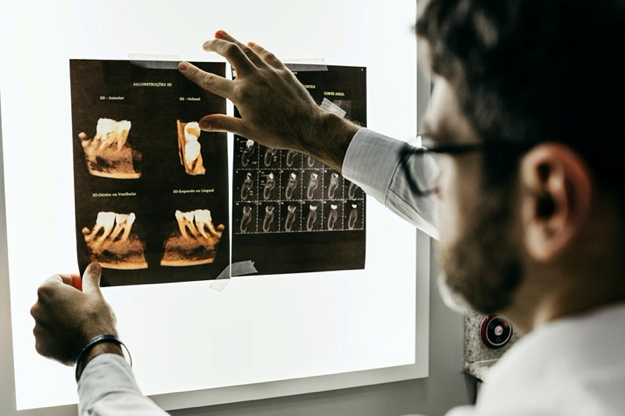Genetics is an important factor for hearing and sound disorders in children. Our bodies are a make-up of trillions of tiny cells. Within each one of those cells, we have thousands of genetic materials, which act like instructions that decide how our body will grow and develop. They are also the determining units that make us unique amongst others.
Why Genetics is Important in People with Sound Disorders?
This brings us to the question, are sound disorders also just a defect of our genes? Well, our genetic coding is responsible for all of our physical features. This includes our height, the color of our eyes, and everything else.
Similarly, we also have genes that have the coding to how our ears grow and function. The complexity of the human ear is unfathomable. Once you look into it, you find that it comprises many small organs that function in great harmony together so that we can hear and perceive sound.
Hundreds and thousands of genes inside your body help determine the functionality of the ear and its condition. Therefore, if one of one those genes are not working properly, sound disorders can occur.
There are many reasons why someone has to suffer from sound disorders, such as tinnitus. One of the reasons includes overexposure to loud noises; while other times, it is a result of a serious illness. However, we also know that changes in genes have the most influence on sound disorders.
This means that the mutation in genes is often the cause of tinnitus. Most of the people who suffer from sound disorders have a genetic mutation that makes their ear unable to function and, therefore, make wrong perceptions of sounds.
If you have a family history of sound disorders, then it can transfer on to you as well, making it a hereditary condition. Knowing if there is a hereditary problem in terms of sound disorders in the family is a great way to deal with your sound disorder.
This is because the symptoms of sound or hearing disorders may occur later in life. Hence, knowing beforehand makes you prepare for them and possibly counter them, mitigating their effects. Sound disorders that occur from a genetic mutation will mostly also associate with other medical conditions.
Identifying a sound disorder and anticipating it may also help stabilize the effects if you take the right precautions. Understanding that there is a hereditary chance of a sound disorder also gives a chance to the health care providers to formulate a better strategy so that you can cope with it better without having to sacrifice your quality of life.
Types of Hearing Disorders
There are different types of hearing disorders, some closely associated with the dysfunctions of the ear, while others are mostly cognitive problems. The three most common disorders of hearing sound are hearing loss, Hyperacusis, and Tinnitus.
Tinnitus
Tinnitus can be a buzzing or a tingling sound in the ear without any external source of the sound. It is a faulty perception by the brain. It is a conscious realization and hearing of a sound that you hear involuntarily. There is no particular cause of this hearing disorder; instead, it is the symptom of another underlying condition.
The Mechanism of Tinnitus
A huge number of active nerve centers in the brain transmit electronic signals, and they all have different roles. There is a very specific area in the brain, the auditory cortex. This region is responsible for processing sound information.
The arrangement of the auditory cortex is in such a way that it helps determine different pitches and frequencies of sound. Any disruption in the auditory cortex leads to either hearing loss or sound disorders such as tinnitus or hyperacusis.
The nerves that make up the auditory cortex can sometimes start to activate without any external stimuli. This usually occurs due to aging. The firing of the nerve endings together causes the brain to perceive sounds that do not exist.
Therefore, this causes you to experience tinnitus sounds. In other words, if the ears stop connecting to the auditory center, then they begin to give out an unregulated signal, causing the experience of tinnitus.
Are Sound Disorders Hereditary? Conclusion
With the help of specialists like Stephen Katz LCSW in New York, founder of the Tinnitus Cognitive Center™, people can look forward to more advanced and effective treatments of tinnitus. If you or anyone you know suffers from tinnitus or hyperacusis, make sure to get the most cutting edge treatments anywhere in the world. Call us today at (646) 213-2321.



[…] can occur due to wax, fluid, or foreign substance buildup in the eardrum or canal. It can also be a birth deformity that might require surgical treatment. Irregularity of the small bones more likely leads to […]